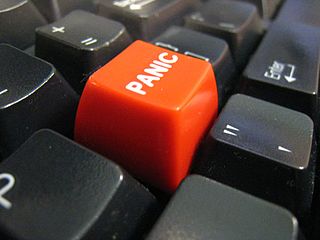One of things that took me by surprise when I launched my porn website a decade ago was the amount of hatred thrown at pornstars. As I got to know the sex industries better, I discovered that strippers and prostitutes are the targets of similar abuse – or worse. But the biggest surprise was the source of much of the hatred: not from a religious-minded “patriarchy”, as I’d expected, but in large part from other women, and especially from feminists.
This was bizarre, given that feminist morality campaigners were claiming they were out to rescue these women. When “rescuing” entails spitting on strippers as they go to work, supporting immigration and drug squad raids on brothels, and calling for well-paid women to be made unemployed, one has to suspect the true motivations of the rescuer.
Pornstars are public performers, and tend not to be particularly shy or retiring. But most prostitutes, out of necessity (partly thanks to the bigotry of the rescue industry), seek privacy. In my campaigning work, I’ve often encountered women who have had their livelihoods attacked, but have chosen to stay silent because of the fear of stigma, should they choose to defend themselves. The video-on-demand regulator ATVOD, for example, chooses to publish the real names and addresses of sex workers who run video websites. It is, of course, purely coincidental that a number of such women have chosen to close down their sites rather than be forced to publicly defend their right to run them.
Anti-sex campaigners rely on sex workers’ fear of publicity, knowing that few will openly challenge their campaigns of misinformation. So when I watched the excellent Sex Workers’ Opera at a packed theatre in East London last night, I was deeply impressed by (among other things) the bravery of the performers, many of whom were sex workers.
The performance opened with a rant from a “member of the audience”, who jumped on stage and began shouting about “objectification” and “trafficking”, while screaming SHUT UP! at anybody who dared look in her direction. This rapidly set the scene: in this war of morality-dressed-as-concern, even those sex workers who dare to speak for themselves must be denied a voice. They must be saved, and if they don’t want to be saved, it just shows how badly sex work has fucked them up psychologically, thus reinforcing the need to save them.
The performances were based on sex workers’ own stories, and so were poignant as well as frequently funny; they often struck a chord with sex workers who were present in the audience. The police raid in which women were taken from their workplaces and locked in cells “for their protection”; the women forced to work alone, and made more vulnerable to attack, by laws against brothels; the prostitute who found herself giving marriage guidance counselling to her client; the dominatrix; the submissive. A section of the performance was by webcam workers, and was projected onto a screen rather than performed live on stage. There was an excellent performance by a pole dancer.
Having expected a fairly amateur affair (after all, none of these were professional singers or actors), I was surprised by the quality of the writing, production and performances. For sure, there were some rough edges – but for a two-day play staged by non-professionals, the quality was easily good enough for me to enjoy the entire show.
The overall message was a simple one, which was laid bare in the finale: Listen To Me. How dare outsiders deign to speak on behalf of those whose voices they refuse to hear? How dare moralists insist to know more about sex work than the sex workers themselves?
Want to see it? Sadly, you’ve probably missed it. Tonight’s is the final performance, and it’s almost certainly sold out, as yesterday’s was. But the show was strong enough that, with professional production, it could be revived as something bigger and better in future. Let’s hope this happens, and that these voices reach an ever wider audience. You can join their Facebook page or follow on Twitter to keep in touch.




